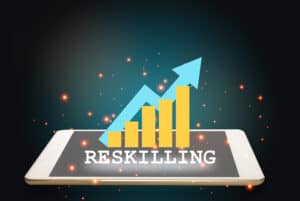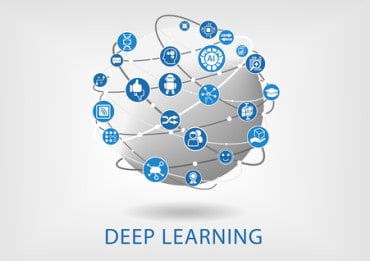
Upskilling AI talent is not just a necessity but a moral imperative to shape a future where AI is used ethically and responsibly.
As artificial intelligence continues to redefine the future of work, it is crucial to recognize that our efforts shouldn’t be spent just on the development of advanced technologies but also on upskilling and reskilling talent to take full advantage of this disruption to benefit society at large. By harnessing the human and technical skills that will shape the future of AI, leaders can ensure that their organizations are positioned to win in the AI-driven global economy.
In today’s rapidly evolving technological landscape, upskilling in AI has never been more critical in building workforce capability and agility. Businesses are accelerating their recruiting efforts for highly skilled (and highly scarce) professionals in AI. According to our IT Skills and Salary Report, AI/machine learning is the third area of investment for organizations, yet it’s among the top 10 most difficult skills to hire for. This talent constraint was further underscored by the recent $900,000 job posting for a machine learning product manager at one of the leading media platforms.
This isn’t a temporary moment in time; AI will continue to impact the workplace as well as talent recruitment and retention. The AI skills gap is only growing wider, but by investing in upskilling initiatives, organizations can transform the pool of skilled individuals within adjacent roles and technologies into AI-skilled talent who can effectively leverage emerging technologies to drive innovation, solve complex problems, and ultimately ensure the long-term prosperity of their organizations.
Here are a few things to keep in mind when embarking on this skill transformation journey:
The Quest for Exceptional Skills
OpenAI predicts generative AI will impact 80% of all jobs. As AI continues to be top of mind for many businesses today, it is paramount that organizations be proactive about equipping employees with the tools and resources needed to learn about and properly use generative AI. Some would say that’s easier said than done. Talent equipped with the right AI skills is extremely limiting and hard to find. Instead of “buying” talent, upskilling and reskilling existing talent with AI skills is a far more sustainable option and also has the added benefit of improving workforce retention and employee engagement.
Upskilling employees to create talent is crucial to the growth and development of the workforce, but like other strategic investments, it requires a thoughtful, methodical approach to yield the best results. In most business transformations, organizations (like individuals) move on a journey from literacy, a basic understanding of the skills, to mastery (full competence on what is needed to be successful in their role. Each step along this journey requires different learning interventions or “modalities” to yield the desired outcomes. For example, self-study digital learning modules are effective to build a basic understanding of concepts, but for learners to be competent and proficient, they need hands-on experience with the technology or practice through behavioral scenarios to be effective. Having said this, this journey can’t begin unless the starting point is understood. Organizations must invest in objectively benchmarking the current skills of the workforce so that the appropriate learning solution can be recommended and, more importantly, skill transformation can be measured.
Ensuring all levels of learners are covered within training is important. Learning development programs are not “set it and forget it.” Instead, you will need to use learner data to measure the success and progress of the program. Through data analytics and insights, you can better understand how employees are progressing on their journeys. From here, you will be able to adjust and tweak your training as needed to find the best practices for your team.
Upskilling for AI should not just focus on technology skills. AI skills must be augmented with power skills like creativity, communication, critical thinking, and understanding and identifying bias to create exceptional skills with exceptional agility. A workforce well-versed in power skills is a competitive and competent one; while AI can support various tasks, it can never fill in for empathetic and communicative leaders like your manager in the office or a colleague across the globe.
Upskilling should be a critical part of every organization’s retention strategy. When given the opportunity to learn, talent is more likely to remain at an organization – our recent IT Skills and Salary report found almost half of the surveyed respondents (49%) stayed with an organization because of learning and development opportunities.
As the landscape continues to change — especially in light of innovations like generative AI — learning has become even more urgent for all. Developing broad and deep skill sets is essential and also an opportunity. Traditionally characterized as “T-shaped” employees, these are people who have deep expertise in one area along with a broad set of related or adjacent skills. A sustainable workforce can seamlessly transition between different projects thanks to its diversified skill set.
The next normal will be empowered by a culture that encourages T-shaped employees who are well-versed in both power skills and technical skills. This benefits employers and employees alike. Employers can transform their organization into one built on adaptability and agility while also empowering employees to be more efficient at work and take on new opportunities aligned with gained competencies. This new frontier of AI will likely spur a rise in T-shaped talent wearing multiple technical and non-technical hats.
It is likely that the war for AI talent will escalate. To navigate this successfully, business leaders must assess their most critical skills gaps, anticipate how this might shift in the near and longer term, understand what AI workers want, and, most importantly, invest in reskilling and advancement opportunities to keep talent engaged and fulfilled.
See also: 4 Skills Tech Talent Need to Make Themselves Indispensable
Ethical Considerations in Talent Development
While the onslaught of AI has given us the opportunity to reskill and upskill talent, it will also enforce the need for more ethical and secure use of AI. The bottom line is that every person in an organization needs access to high-quality ways of learning what AI is, how to use it to do their jobs more effectively, and how to use it responsibly.
Training individuals to use AI ethically is essential in order to ensure responsible and unbiased deployment of this powerful technology. Ethical AI training equips individuals and organizations with the knowledge and skills to navigate the challenges and identify risks that arise when working with AI systems. It ultimately boils down to mitigating risk – just like anti-bribery and corruption policies, as well as the importance of data privacy and security. By providing individuals with the necessary training, we can foster a culture of ethical AI use, where technology is harnessed for the benefit of all while mitigating potential harm and ensuring equitable outcomes.
As AI continues to advance, it is critical to ensure that its development and deployment align with ethical principles. By promoting ethical AI practices, organizations can mitigate potential risks and biases, build trust with users, and ensure that AI is used for the betterment of society. Upskilling AI talent is not just a necessity but a moral imperative to shape a future where AI is used ethically and responsibly. While the future of AI may fuel and be fueled by technological advancements, it is driving the need to cultivate exceptional minds. By investing in talent development, fostering collaboration, and prioritizing ethical considerations, AI is inspiring a catalyst for progress, exceptional talent, and a brighter future.




























